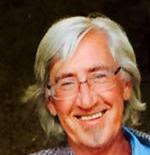Today marks the 5th anniversary of this most interesting man's death. Here is the eloquent obituary Tony Russell wrote for the (British) Guardian newspaper:
Henry Townsend, who has died aged 96, was the last survivor from the blues milieu of St Louis in the 1920s and 1930s, a hub of activity rivalled only by Chicago. Since the death of Yank Rachell (obituary, April 22 1997), Townsend had been the only blues musician who could trace his recording career back to the 1920s, having sat down before a recording microphone in November 1929 to sing his Henry's Worried Blues.
But Townsend was exceptional for more than longevity. Many of the blues musicians of his generation, who survived to find a new audience in the 1960s and 1970s, performed as if nothing had touched their music. It had been made clear to them that this was what their public wanted. How they felt about it themselves, few stopped to ask.
Townsend's attitude was quite different. While he did not scorn his old recordings, he had no taste for spending his later years simply recreating them. Blues, for him, was a living medium, and he continued to express himself in it, most remarkably in his songwriting. Even in his 70s he was producing entire albums of new compositions. Not satisfied with his exceptional skill as a guitarist, he devoted himself to his second instrument and emerged as a blues pianist of succinct delicacy.
He was born in Shelby, Mississippi, but grew up in St Louis. As a boy he worked for a bootlegger. In his late teens he became interested in playing the guitar and began to infiltrate a circle of musicians that included Lonnie Johnson, Roosevelt Sykes and Peetie Wheatstraw.
Such men were making names for themselves in the African-American community with their records, and Townsend took the same path, not only recording in his own right but accompanying other players such as Big Joe Williams and the thoughtful singer and pianist Walter Davis. He was struck by Davis's skill as a songwriter, and they worked together intermittently into the 1950s.
The speakeasies of St Louis's black section were a tough education. In his autobiography, A Blues Life, Townsend vividly recreated their ambience, with their whores, corrupt policemen and violence. To the violence, he sometimes contributed himself. The bluesman JD Short, possibly jealous of his skill, came after him with a knife. Townsend pulled out his .38 and shot him in the genitals. He also met Robert Johnson, by whom he was moderately impressed. "An average kind of guy. He really had some sweet, sweet sounds. But there was plenty of other people before and after him."
A pensive and articulate man, Townsend repeatedly found himself at odds with the times. While doing military service in the second world war, he was judged uncooperative and was brought before his commanding officer, who explained that he should be concentrating on fighting the enemy. "That's not my enemy," Townsend said. "People in St Louis right now, there's places they can't go and eat. There's places right here,off camp and in the camp, that I'm not allowed there. So if I was gonna fight my enemy, it would be you." He was discharged.
In the late 1950s, with little happening in the blues business, Townsend began working as a debt collector. He made enough to be unexcited about taking up music again, and turned down offers to play overseas, or even at local colleges. It was not until he retired in the early 1970s that he immersed himself in music again, often working with his wife Vernell, a fine singer. He made albums for half a dozen labels.
In 1985 he received a National Heritage Award from the National Endowment for the Arts, and 10 years later was inducted into the St Louis Walk of Fame. More recently, he performed in the Delta Blues Cartel with fellow blues veterans David "Honeyboy" Edwards, Robert Junior Lockwood and Homesick James, their combined ages making them the only 300-year-old blues band.
A few days before he died, Townsend went to Grafton, Wisconsin, to participate in another celebration of America's musical past, the opening of the Paramount Plaza Walk of Fame. Some 80 years ago, Paramount was a leading record label for African-American music, producing best-selling discs by Ma Rainey and Blind Lemon Jefferson, as well as an extremely rare one by Townsend himself. He was too ill to perform, and his son Alonzo accepted the honour for him. He died in hospital a few hours later.
Henry Townsend, musician, born October 27 1909 in Shelby MI; died September 24 2006 in Mequon WI.


No comments:
Post a Comment